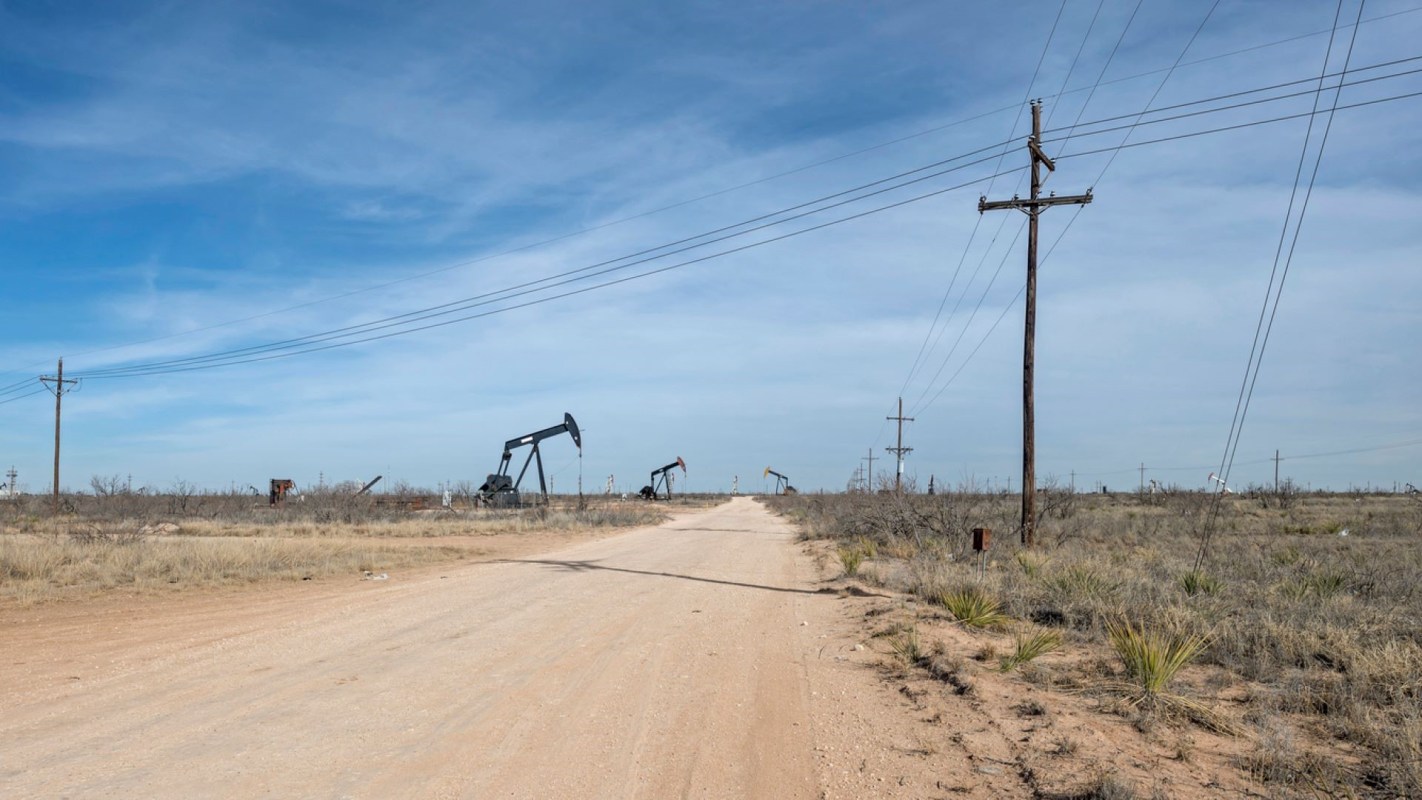A battle over some of the most valuable land in the U.S. has two companies — which represent energy industries with differing viewpoints on sustainability and clean energy — at odds.
The Permian Basin in southeastern New Mexico and western Texas is the epicenter of a clash between oil producer Fasken Oil and Ranch and Florida-based energy-tech company Holtec International.
According to the Wall Street Journal, the region is the busiest oil field in the nation, producing more oil than Iraq and Libya combined. Fasken "has amassed more than 160,000 acres of land" in the Permian and produces 40,000 barrels of oil daily.
However, the land can hold around 170,000 metric tons (about 187,000 tons) of spent nuclear fuel — about twice as much as the current capacity in the U.S., according to the news outlet. That feature makes it an attractive destination for Holtec, which wants to transport thousands of canisters of radioactive refuse from around the country to Lea County and temporarily store the containers underground.
The proposed site would become the world's largest such facility and help expedite the growth of nuclear power in the States. Per the Wall Street Journal, Ed Mayer, program director at Holtec, claimed it wouldn't "affect oil-and-gas operations and under no situation would we affect them."
The Journal also reported that a spokesman for the company said a nuclear waste storage site "takes into account all aspects in the surrounding areas related to environmental concerns and that it had received a license after an extensive regulated process."
Experts stated that the project would allow the U.S. to consolidate nuclear waste at one or two sites. That would make it easier to monitor while saving the government billions of dollars by reducing the number of utilities it is paying to house the hazardous material, the Journal indicated.
Nonetheless, Fasken general manager Tommy Taylor opposes the plan for reasons such as potential nuclear incidents, radioactive contaminants, terrorist attacks, and the derailment of trains shuttling the waste.
"I'm not antinuclear," he told the Journal. "We just don't feel like siting all the nuclear waste in the middle of our biggest oil and gas resource is a good idea."
As such, Fasken is waging a legal war to block the federal approval of the proposal. It has lobbied GOP Senate leader Mitch McConnell and Texas Attorney General Ken Paxton and recruited the support of ranchers who are worried about radioactive contamination.
Additionally, oil and gas giants ExxonMobil and EOG Resources have expressed concerns over a Holtec site interfering with their operations.
Though the Permian already houses two operations that oversee some types of nuclear refuse and the country's only commercial uranium-enrichment facility, New Mexico essentially outlawed the storage of high-level radioactive waste last year, while Texan legislators have opposed similar facilities, the Journal reported.
The Holtec project is not without supporters, who cite the need to prepare for a future that is less reliant on dirty energy sources and, therefore, won't provide that type of employment opportunity.
The company stated the project will invest around $3 billion into the local economy and generate 400 jobs.
"We think nuclear energy and managing nuclear products is the way of the future," said Jack Volpato, chairman of the Carlsbad Nuclear Task Force, per the Journal.
Join our free newsletter for cool news and actionable info that makes it easy to help yourself while helping the planet.









